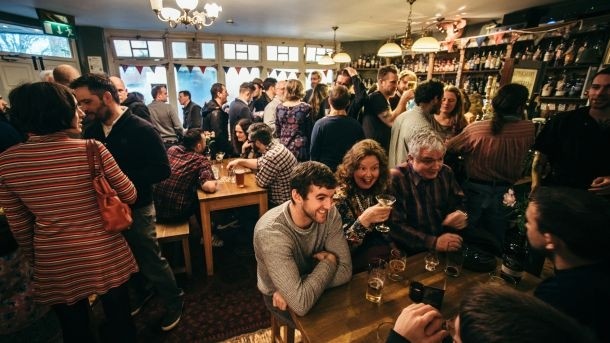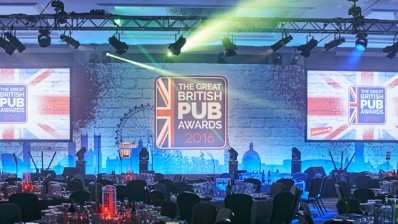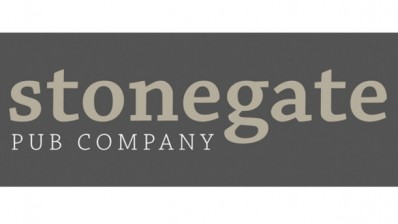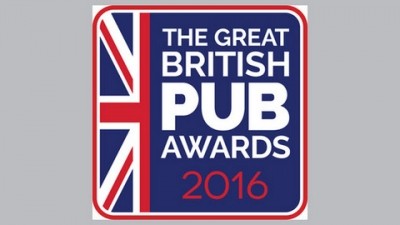'Professionalism, choice and positivity': A view on the state of the sector

When I joined the Publican’s Morning Advertiser (as it was then) back in January 2012 my previous experience of the sector was purely as a regular and keen user of pubs. To be honest I knew little of duty escalators, the Beer Orders, select committee enquiries and antagonistic tenant-pubco relations over the tie.
What I did know is that it was a sector struggling to get off its knees because of a deep economic recession, the smoking ban and changing consumer habits.
That’s not to say it felt all doom and gloom when I started. I remember being mightily impressed by the quality of some of the venues I visited during those early days, as well as the people that ran them. I began to look at pubs in a different and more analytical way, much to my wife’s annoyance.
Shifting narrative
What struck me were the hard-working, passionate licensees, striving to deliver a consistently great customer experience, who were succeeding in spite of the Government and its policies, rather than because of it. Operators fighting hard to resist the triple threat of the ‘three Ss’ – supermarkets, sofas and social media.
Coming from the staid (and frequently dull) sectors of corporate communication and human resources, getting under the skin of licensed retail - and getting to know the larger than life characters within it - was an absolute delight. The perks were better as well!
There was no disguising the fact the trade was under huge pressure at that time. People I spoke to in those early months were desperate for greater support for their businesses from a Conservative government that had boldly promised to be the most pub-friendly ever.
The narrative began to shift in early 2013 following a joined up and well fought campaign to scrap the beer duty escalator. Every industry needs champions in Westminster, and ours had one in Andrew Griffiths MP, up until recently the chair of the All-Party Parliamentary Beer Group.
His headship in Parliament helped with the scrapping of the damaging duty escalator by Chancellor George Osborne, along with a penny cut in beer duty. It showed what could be achieved when the sector was unified and spoke with one voice to government. Further cuts followed in 2014 and 2015, with a freeze in this year’s Budget.
“Everything is awesome”
Running a profitable pub remains a massive challenge. The economic environment is fragile in this post-Brexit world, consumer disposal income is tight, margins are under pressure and competition is ferocious. As Jonathan Downey, who knows a thing or two about running successful venues, remarked at an event I attended last month, these days “everything is awesome”. New openings are spot on in terms of service, design and operation. Anything less than outstanding just won’t fly.
This era of professionalism should be welcomed - it has undoubtedly helped drive up standards. In a recent MA interview, British Institute of Innkeeping chairman (and successful multiple operator) Anthony Pender says: “We should all be professional retailers now. Before you might have been able to get away with a clean pub and a smile but now you need to be multi-skilled.”
Thinking back to my early time on the publication, one group that always seemed ahead of the curve were members of the (then) MA250. This dynamic, entrepreneurial bunch were pushing their businesses forward through new ideas and fresh thinking. The majority were looking to grow and invest and, by and large, offered something a level above the traditional pub-going experience.
That group is now double in size, with these talented multi-site retailers active on the acquisitions front and still a hotbed of innovation. Now they are energetically teaming up with the big boys of the tenanted world to share expertise in alternative managed models.
The “post-food” revolution
A big challenge for the future, as I see it, is how pubs can develop alternative revenue streams in what some have called “the post-food revolution”. The annual ALMR benchmarking report underlines how the sector has evolved in recent years with food sales now accounting for 32% of turnover, and wet sales slipping to their lowest level in a decade.
Britain’s 145,000 pubs, clubs and other licensed premises sold less beer than supermarkets and off-licences last year – for the first time since industry records began. Recognising this, pubcos have targeted their support for tenants and lessees in growing food sales in a bid to stay relevant to consumers.
But there is a need to find other avenues to generate income. Accommodation is an obvious answer, with more or more pubs looking to add letting rooms and appeal to tourists, business travellers and ‘staycationers’ alike. Yes, it requires significant capex upfront but can provide attractive returns and uplifts in F&B sales.
A couple of events I’ve been at recently have posed the question whether the ‘Great British Pub’ is undergoing some kind of existential crisis. Is traditional pub culture disappearing quietly into the night? What long-term competitive threat does the rise of casual dining, café-bistros and other disruptive entrants into the market pose?
Let’s not sound the death knell of the wet-led community local just yet. There are plenty of examples of how the model can thrive given smart operational focus and targeted investment. The strength of entrants to that category every year at the Publican Awards shows how it can still succeed.
The MA’s Great British Pub Awards – taking place this week – also demonstrate the passion and creativity of single site licensees running different types of venues all over the country; reinventing themselves in response to ever-rising customer expectations.
I’m mostly a glass half-full kind of guy. There will always be a need for social drinking spaces - they will just look differently to before. Good operators respond to new trends and habits, but the challenge to stay relevant and build loyalty among an increasingly promiscuous customer base is tough.
On a more macro level, I do worry about the noise generated by the anti-alcohol lobby, which for one reason or another garners influence far more than its bad science and questionable statistics deserve. That’s why I was pleased to see the launch of the Alcohol Information Partnership, a coalition of producers set up to ensure the debate around alcohol remains balanced and evidence-based. More power to them.
Government support
Given all these pressures, the Government must delay or reassess some of its policies that directly impact pubs. There are warnings of a perfect storm of rising labour costs, changes to business rates, new pension burdens, allied with post-Brexit uncertainty, which threatens to undermine growth and investment.
Postponing the introduction of the apprenticeship levy or slowing down the rate of increase to the National Living Wage would be welcome. Clarity on future legislation and any potential restrictions on overseas labour is required urgently.
To me it’s unclear just what the Government’s long-term plan is for licensed retail. Just last month it made changes to legislation that make it easier for local authorities to impose a Late Night Levy, even though evidence of the effectiveness of this measure remains patchy.
Given the right business environment, this is a sector that can positively contribute to society in so many ways.
I’d like to see the Government look seriously at a new VAT rate for the hospitality sector, something which is now possible following Brexit; greater help with employment costs and skills training; a review of restrictive powers affecting the late-night economy; and fairness in the business rates system.
New positivity
Having said all that, I do think the sector is in a better place now than when I joined almost five years ago. Going to the pub is, on the whole, an all-together better experience. There is greater choice, at a far higher standard. In order to continue that upward curve what we need is targeted support, not interference.
Now the statutory pubs code is in place – whether you agree it was necessary or not – let’s hope ministers leave the sector alone for the foreseeable future. That’s why the recent suggestion that the Government wants to name and shame hospitality outlets over pudding sizes is so disappointing. This is exactly what the trade does not need. Hands off our puddings.
In summary, challenges remain, of course, but there is so much to be positive about. We know pubs continue to play an important part in the British psyche and rank well when it comes to eating and drinking out choices. The pub is the home of our national drink. They are run by some of the country’s outstanding retailers. Staff training and development has undergone a paradigm shift and now some of the UK’s top employers are pub companies.
Thankfully, I’m staying in this great sector and joining the team at PR and comms agency Fleet Street Communications, working with some excellent brands and operators.
They say that hospitality is infectious and a tough sector to step away from - I’m certainly looking forward to continuing my career within it.








